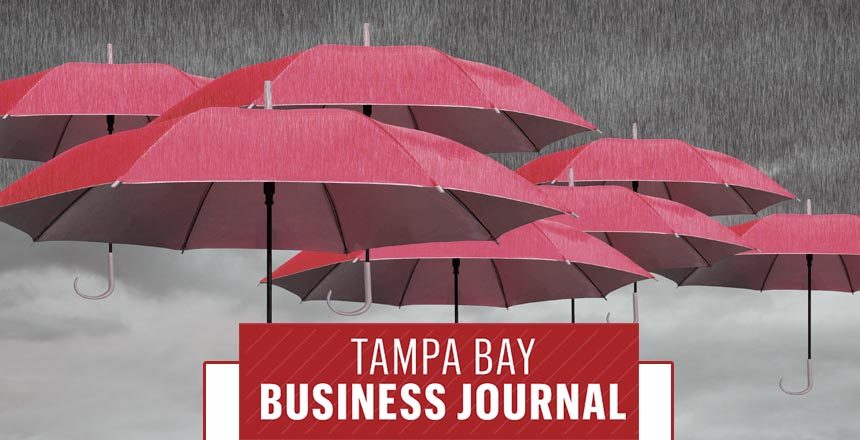Residents of many parts of the U.S. are engaged in storm-readiness during these vulnerable hurricane months. We engage in an annual ritual of preparation that includes gathering bottled water, batteries, candles, canned and paper goods, important documents, and updating evacuation plans.
Why is this relevant to leadership? Because leaders are navigating through one of the most encompassing storms in recent memory.
Currently, we face the impact of rapid climate change, a global pandemic with no end in sight, supply chain disruptions and labor shortages, to name a few. What’s needed now is the capacity to both plan and improvise. Finally, one of the most important roles for a leader right now is to stay calm in the eye of these storms.
With strong external headwinds, we may feel the need to work harder, increased pressure to perform or do more with less. Many individuals and teams are experiencing symptoms of chronic stress in mental and physical health. The capacity to concentrate, collaborate and even make decisions is diminished.
If you or members of your team are experiencing these fight or flight responses consistently, it’s time to do something about it. Consider these pre-pandemic statistics.
- Disabling stress has doubled in the U.S. since 1990
- One million people miss work daily due to stress-related disorders
- Only one in five Americans wake up looking forward to going to work (USA Today poll)
 Since the pandemic, this trend has continued and worsened. A report by Oracle published in Forbes (May 4) showed that “78% of employees believe the coronavirus pandemic has severely affected their mental health; 40% are making more flawed decisions, and 90% conclude that newfound work-related stress affects their home lives. The culmination of which is causing unprecedented levels of depression (up 53%), anxiety (up 55%), and even PTSD (up 32%), which is further exacerbated by a growing backlash against employee surveillance.”
Since the pandemic, this trend has continued and worsened. A report by Oracle published in Forbes (May 4) showed that “78% of employees believe the coronavirus pandemic has severely affected their mental health; 40% are making more flawed decisions, and 90% conclude that newfound work-related stress affects their home lives. The culmination of which is causing unprecedented levels of depression (up 53%), anxiety (up 55%), and even PTSD (up 32%), which is further exacerbated by a growing backlash against employee surveillance.”
We are living through one of the greatest disruptors in recent memory. Organizations and their leaders have an opportunity to cultivate cultures that work for both employees and employers. This requires more than simply changing our actions. We need to make total well-being a priority for ourselves and demonstrate it to others. We need to become conscious, thoughtful and connected leaders.
With respect to planning, what are you practicing to be prepared? Are you consciously cultivating a mood in your organization in which creative, satisfying solutions are possible or has there been a mood of entrenchment and “hunkering-down” based on fear?
Consider these questions to stormproof your leadership skills:
- Do you have a vision of where you’re headed and are you on track?
- Has it been shared with and embraced by others whose help you need?
- How strong and clear are your communication systems?
- Are you able to remain calm in the center of a storm?
- What have you avoided that is no longer avoidable?
With respect to improvisation, are you trying to “go back to normal” or do you invite conversation around “what is this new world asking of me and of us?” and “What are all our stakeholders asking us to think about?”
As a team coach, I’ve observed that we can create the conditions for leaders and teams to improvise It is a skill to be cultivated. When we do, teams have the ability to navigate with more clarity and confidence in today’s volatile, uncertain, complex and ambiguous environment.
Just as we invest time and effort in preparing ourselves for storms, leaders can and should do the same. We are already practicing lots of things, most of them unconsciously When was the last time you really explored the leadership practices you have in place? Are you practicing for the weather you wish you had or the weather you actually have right now?
Are you ready to create new practices — ones that serve you and others to move forward right now?
Creating calm in the center of the storm allows leaders to weather the intensity of rapid technological change, global economic shifts, and competitive inroads. Develop the ability to be centered and present to all that is unfolding. Set your sights on being an “eye” so even when the hurricane winds may swirl around you, you will be the one still standing.
A Tampa resident, Susan Freeman is an executive success strategist, leadership and team coach, speaker and author of “Step Up Now: 21 Powerful Principles for People Who Influence Others.” She writes on the topic of leadership and influence using her innovative system that blends Western strategy and Eastern wisdom.

